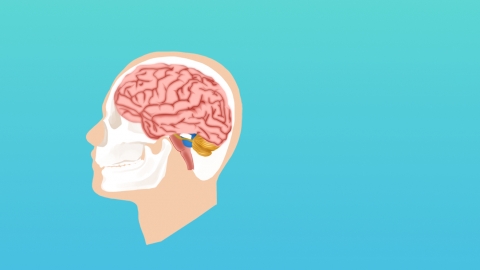What causes cerebral atrophy?
Generally, cerebral atrophy may be caused by genetic factors, aging, malnutrition, Alzheimer's disease, Parkinson's disease, and other factors. Symptomatic management usually involves general treatment and medication. If experiencing any discomfort, it is recommended to seek timely medical attention and undergo appropriate treatment under a doctor's guidance. Detailed analysis is as follows:

1. Genetic Factors
Hereditary diseases or genetic mutations may be associated with the development of cerebral atrophy. Genetic factors can influence the growth, differentiation, and survival of neurons, leading to neuronal dysfunction and death. Early diagnosis and genetic counseling can help patients and families understand the condition and implement appropriate rehabilitation measures and supportive treatments.
2. Aging
With advancing age, various bodily functions begin to decline, and the blood vessels in the brain also gradually age, leading to a certain degree of brain tissue atrophy. This is a normal physiological phenomenon. It is recommended to maintain a healthy lifestyle in daily life, such as balanced nutrition and moderate exercise, to delay the progression of cerebral atrophy.
3. Malnutrition
During the growth and development stage, severe nutritional deficiency may restrict brain development, leading to cerebral atrophy, which may be accompanied by symptoms such as weight loss, decreased immunity, and anemia. Daily attention should be given to nutritional supplementation, ensuring sufficient intake of proteins, vitamins, minerals, and other nutrients to support normal brain development and function.
4. Alzheimer's Disease
Alzheimer's disease is a common neurodegenerative disorder. In Alzheimer's disease, β-amyloid plaques and neurofibrillary tangles form in the brain, disrupting connections between neurons and leading to neuronal death and cerebral atrophy. As the disease progresses, more severe cognitive impairments and declining ability to perform daily activities may occur. It is recommended to follow medical advice and use medications such as donepezil hydrochloride tablets, rivastigmine tartrate capsules, and memantine hydrochloride tablets to alleviate symptoms.
5. Parkinson's Disease
Parkinson's disease is a neurological disorder primarily characterized by motor dysfunction. In Parkinson's disease, dopaminergic neurons in the brain are damaged and die, leading to reduced dopamine levels and resulting in impaired motor control. Common symptoms include tremors, bradykinesia, and postural and balance disorders. It is recommended to undergo treatment under a doctor's guidance using medications such as benztropine mesylate tablets, amantadine hydrochloride tablets, and levodopa tablets.
In daily diet, it is recommended to maintain a balanced dietary structure and consume adequate nutrients to help maintain overall health.








